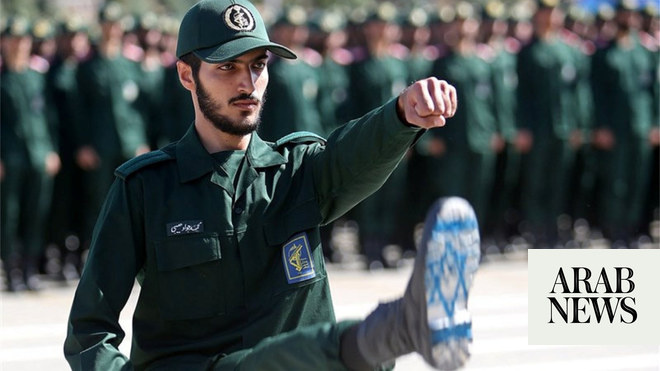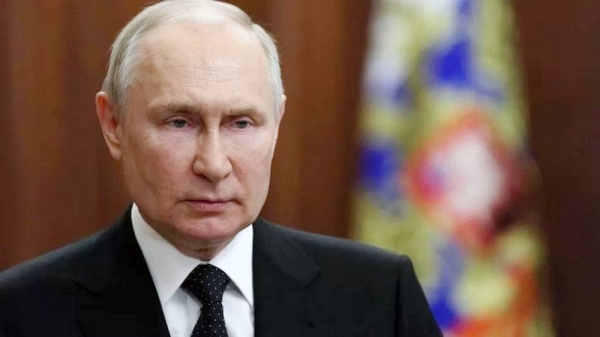
Gen. Nilforushan served as the deputy commander for operations in the Guard, a role overseeing its ground forces
DUBAI: A prominent general in Iran’s paramilitary Revolutionary Guard died in an Israeli airstrike that killed Hezbollah leader Hassan Nasrallah in Beirut.
The killing of Gen. Abbas Nilforushan marks the latest casualty suffered by Iran as the nearly yearlong Israel-Hamas war in the Gaza Strip teeters on the edge of becoming a regional conflict.
His death further ratchets up pressure on Iran to respond, even as Tehran has signaled in recent months that it wants to negotiate with the West over sanctions crushing its economy.
Ahmad Reza Pour Khaghan, the deputy head of Iran’s judiciary, also confirmed Nilforushan’s death, describing him as a “guest to the people of Lebanon,” the state-run IRNA news agency said.
Khaghan also reportedly said that Iran had the right to retaliate under international law.
Nilforushan served as the deputy commander for operations in the Guard, a role overseeing its ground forces.
What he was doing in Lebanon on Friday wasn’t immediately clear. The Guard’s expeditionary Quds Force for decades has armed, trained and relied on Hezbollah as part of its strategy to rely on regional militias as a counterbalance to Israel and the US.
Nilforushan, like other members of the Guard that view Israel as Iran’s main enemy, long mocked and criticized the country.
“The Zionist regime has many ethnic, cultural, social and military rifts. It is in vulnerable and in doom status more than before,” Nilforushan said in 2022, according to an IRNA report.
The US Treasury sanctioned Nilforushan in 2022 and said he had led an organization “directly in charge of protest suppression.”
Those sanctions came amid the monthslong protests in Iran over the death of Mahsa Amini following her arrest for allegedly not wearing her headscarf, or hijab, to the liking of police. At the time, Nilforushan accused Iran’s enemies abroad of stoking the demonstrations led by Iranian women that challenged both the mandatory hijab and the country’s theocracy.
Nilforushan also served in Syria, backing President Bashar Assad in his country’s decades-long war that grew out of the 2011 Arab Spring. Like many of his colleagues, he began his military career in the Iran-Iraq war of the 1980s.
In 2020, Iranian state television called him a “comrade” of Gen. Qassem Soleimani, the head of its expeditionary Quds Force who was killed in a US drone attack in Baghdad that year.
Nilforushan’s death comes as Iran in recent months has been signaling it wants to change its tack with the West after years of tensions stemming from then-President Donald Trump’s unilateral withdrawal of America from Tehran’s nuclear deal with world powers in 2018.
In July, Iranian voters elected reformist President Masoud Pezeshkian following a helicopter crash that killed President Ebrahim Raisi, a hard-line protege to 85-year-old Supreme Leader Ayatollah Ali Khamenei.
While critical of Israel, Pezeshkian has maintained that Iran is willing to negotiate over its nuclear program, which now enriches uranium to near weapons-grade levels. While Iran has been able to sell oil abroad despite sanctions, it likely was at a steep discount and energy prices have fallen further in recent weeks.
Meanwhile, Iran still threatens to retaliate for Soleimani’s killing and the suspected Israeli assassination in Tehran of Hamas leader Ismail Haniyeh in July. Iran hasn’t explained why it hasn’t struck yet, though an unprecedented direct attack it launched in April on Israel failed to seriously damage any major target.












